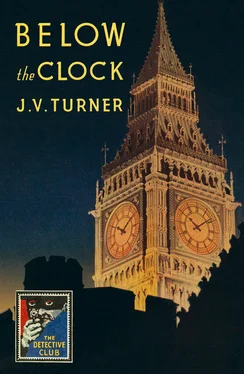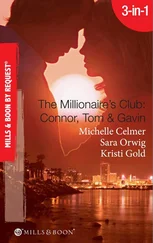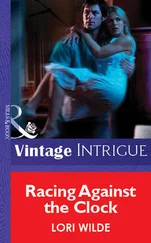‘Seems to be plenty. I’ve questioned two or three folks, but I can’t add much to what you’ve said. I can’t see the point in asking many questions until I know how he died. The whole affair is daft.’
‘Then why on earth do you drag me into it, Angel? When do you think you’ll have the genuine information about what happened?’
‘By lunch-time tomorrow. I’ve had a word with the Coroner for the House and his officer will pass the information to me as soon as he gets it from the doctor. Perhaps you’d better collect me at the Yard in the morning. Maybe you’ll be excused from duty. I hope you are. That’d let me out of it. This death looks everything that’s odd.’
‘Don’t tell me that, Sunshine. Every time they throw you into an inquiry the whole affair bristles with difficulties and trouble.’
‘You know perfectly well that I get every rotten job they can find.’
‘And you make the best of them, lad! If they delivered the culprit to you with a signed confession in his hand you’d find a catch in it somewhere. Be more like the intelligent carp. They never worry. So long as the Cyprinus Carpio can collect an occasional meal it lets the troubles of the world drift by. You, Ripple, never wait for awkward moments. You stay awake at night inventing them. What about this beer you were going to buy for me?’
‘The shout is on you. I don’t get half your money.’
‘Maybe,’ said Amos as they walked out of the building towards Whitehall, ‘but think of the value I give them for what they pay!’
Ripple grunted, bowed his meagre shoulders in an outsize overcoat. Petrie trotted along by his side, chattering about fish. The Yard man was not listening. He was thinking about Edgar Reardon, wondering what would happen if he had to arrest a Cabinet Minister. After the second glass of beer he thawed a little. They were alone in a far corner of the bar.
‘If Reardon was murdered,’ he said, ‘he must have been poisoned, and if he was poisoned the stuff must have been given to him in a glass of claret and seltzer. That’s all he drank while he made his speech. The drink was given to him by Eric Watson, his Parliamentary Private Secretary. He seemed flustered when I saw him tonight.’
‘Might give you a lead. What made you talk to Paling?’
‘I was told that he had been seen around a lot with Reardon and was in the House at the time of his death. He’s a curious bloke.’
‘Aren’t they all? Seen the widow yet, Sunshine?’
‘I thought I’d leave her until she got over the shock.’
‘Did you discover first whether it had been much of a shock?’
Ripple replaced his glass on the table. Frowns ran across his face.
‘You’re a funny little devil. What do you mean?’
‘Nothing. When I see a school of roach swimming like blazes I fancy I can smell a pike behind them. Sometimes when I think of sudden deaths I wonder about women. Perhaps that’s why I’m a bachelor.’
‘Don’t you think we ought to wait a while before we start making guesses? After all, Reardon might have passed away very harmlessly.’
‘There is that possibility. If the idea is strong in your mind I can’t see why you had to pester me. Have another beer.’
‘Not me. I have to keep a clear head. Tomorrow means work.’
‘All right. Take some brightness home to your wife. Good-night.’
Petrie strolled out of the public house, whistling cheerfully.
THE MEDICAL REPORT
WORD passed round the House of Commons on the following day that Edgar Reardon had died of heart failure. It was difficult to trace the origin of the information, but members linked it obscurely with the post mortem which had taken place early that morning. The news was received eagerly and immediately accepted. It was satisfactory to all to know that there was no foundation for the vague fears of Tranter.
Curtis first heard the news while waiting in the outer lobby to speak to Fred Otwood. At the time he couldn’t find an opportunity. Otwood was talking to a small man with a frightened air and an ill-fitting suit—Amos Petrie.
‘I didn’t know that Reardon had a heart,’ said Curtis. ‘In that case Tranter was wrong, almost foolishly wrong.’
‘That’s old news,’ asserted his informant. ‘I wouldn’t take his word for anything that really mattered.’
Curtis smiled vaguely and was walking away when from the corner of his eye he sighted Fred Otwood. At that instant the former Chancellor of the Exchequer leaped to one side as if he had been stung by a tarantula.
‘How dare you, sir?’ he cried.
The little man seemed more surprised than any man of his inches had a right to be.
‘I’ll report you to the House,’ shouted another Member. Otwood’s trouble seemed to be catching! Petrie blinked his eyes and tugged nervously at his coloured handkerchief. He stared round as though searching for an ally.
With unbelievable suddenness the octagonal space in which members woo constituents and placate troublesome petitioners, was converted into pandemonium. It seemed that before the mind recovered from one surprise the eye was shocked by another. Member after member left those to whom they had been speaking and retreated hastily to the Inner Lobby where the outside world may be defied.
Amos Petrie, his mild face creased in bewilderment, walked over to Curtis.
‘Did you see that?’ he inquired. ‘What’s the matter with the man?’
‘I was as much surprised as you were.’
A wan smile passed over Petrie’s face. He remarked artlessly:
‘I only asked him if he could tell me something about the death of the late Edgar Reardon.’
‘Well? And what then?’
‘He didn’t seem to hear me. So I touched his arm to attract his attention. How do you explain it all?’
Curtis laughed and also beat a retreat to the Inner Lobby. Petrie stood with a smile twisting his mouth. Now he realised some of Ripple’s difficulties. It may be generally conceded that those seeking news with regard to an occurrence at a particular time and place first ask those who were present. But whenever detectives attempt such a move in the precincts of the House of Commons they raise nice questions about freedom of ingress and egress and the immemorial Privileges of Parliament. It was so now.
The Inner Lobby was seething with discontent and ruffled vanity. The walls were echoing to discordant voices.
‘They’ve no right in here except as servants of the House …’
‘But if Reardon’s death was not heart failure after all …’
‘Nonsense. Of course it was heart failure.’
‘Why this shoulder clapping business anyway …’
‘A sheer impertinence …’
‘A gross breach of privilege, too.’
‘I’ve never been so insulted before during my years …’
‘We must tell the Speaker. We certainly must …’
‘And discover if he authorised it …’
Fred Otwood promised to raise the question and walked into the House. Curtis followed him and immediately walked over to Joe Manning. He told him of the trouble.
Manning was puzzled as well as annoyed.
‘You’re a lawyer and I’m not, Curtis. What’s the constitutional line?’
‘That depends,’ whispered Curtis. ‘I’d advise you to go slow.’
Manning nodded and took no part in the Parliamentary crisis produced by the arrival of Amos Petrie. He did not need to fan the trouble and he couldn’t assuage it. The Home Secretary made an attempt to temporise and the House became more and more impatient. Matters were not improved when the Speaker admitted that he knew nothing whatever about the affair. He had been kept in entire ignorance about the inquiries.
That fact disturbed even the Speaker. And if the pale ghost of Charles I had appeared at the Bar of the House the private members could not have been more shocked. The Home Secretary was harried, baited and badgered until anyone but an M.P. would have felt sorry for him. He began to wilt, looked hopefully at the Prime Minister. There was no help coming from that quarter.
Читать дальше












